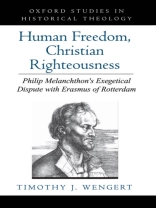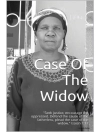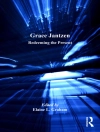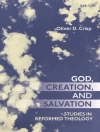This book argues the provocative thesis that Philip Melanchthon, so often pictured as hopelessly caught in the middle between Erasmus and Luther, and more "Erasmian" than Lutheran in his thought, was, at least in his theological methods and views, not Erasmian at all, but in fact sharply opposed to Erasmus. Author Timothy J. Wengert builds his case largely on the basis of Melanchthon’s Scholia on the Epistle of Paul to the Colossians, employing the critically important but seldom used second edition of 1528, which was produced in the aftermath of Luther and Erasmus’s famous debate over the free will. Wengert also draws on a wide range of other contemporary sources, many of them well known but, as he argues, frequently misunderstood. Throughout this analysis he subjects a wide range of the secondary literature to sharp critical review. From the vantage point of a relatively narrow exegetical dispute, the book deals with a number of important topics: the complicated and elusive relationships between humanism and the Reformation, Erasmus and Luther, Erasmus and Melanchthon, and Melanchthon and Luther; the theological issues of proper biblical interpretation, of free will, and of divine and human righteousness; and the hotly contested social problem of political order. Human Freedom, Christian Righteousness will be of interest not only to students and scholars of Reformation theology, but to a broader audience of those concerned with Renaissance and Reformation history and literature.
Timothy J. Wengert
Human Freedom, Christian Righteousness [PDF ebook]
Philip Melanchthon’s Exegetical Dispute with Erasmus of Rotterdam
Human Freedom, Christian Righteousness [PDF ebook]
Philip Melanchthon’s Exegetical Dispute with Erasmus of Rotterdam
Mua cuốn sách điện tử này và nhận thêm 1 cuốn MIỄN PHÍ!
Ngôn ngữ Anh ● định dạng PDF ● ISBN 9780195354034 ● Nhà xuất bản Oxford University Press ● Được phát hành 1998 ● Có thể tải xuống 6 lần ● Tiền tệ EUR ● TÔI 2277487 ● Sao chép bảo vệ Adobe DRM
Yêu cầu trình đọc ebook có khả năng DRM












